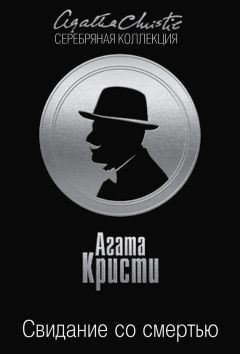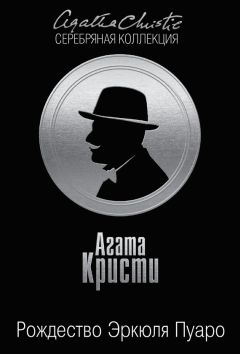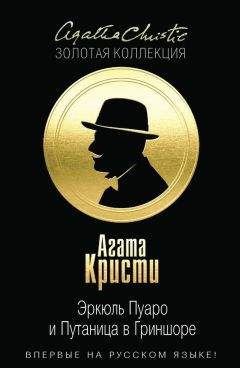Arthur Conan Doyle - Английский язык с Шерлоком Холмсом. Собака Баскервилей
"I have the pleasure," said I, "of knowing your father (я имею удовольствие знать вашего отца)."
It was a clumsy introduction (вступление было /довольно/ неуклюжим), and the lady made me feel it (и дама заставила меня это почувствовать).
"There is nothing in common between my father and me (между отцом и мною нет ничего общего)," she said. "I owe him nothing (я ему ничего не должна), and his friends are not mine (и его друзья не являются моими). If it were not for the late Sir Charles Baskerville (если бы не покойный сэр Чарльз Баскервиль) and some other kind hearts (и несколько других добрых сердец) I might have starved (я могла умереть с голоду) for all that my father cared (несмотря на все заботы своего отца = а отец бы палец о палец не ударил; for all that — несмотря на все это, при всем этом)."
"It was about the late Sir Charles Baskerville (это из-за покойного сэра Чарльза Баскервиля) that I have come here to see you (я приехал сюда повидать вас)."
The freckles started out on the lady's face (веснушки резко проступили на лице дамы; to start — начинать/ся/; резко перейти в другое состояние).
pleasure [ˈpleʒǝ], clumsy [ˈklʌmzɪ], heart [hɑ:t]
"I have the pleasure," said I, "of knowing your father."
It was a clumsy introduction, and the lady made me feel it.
"There is nothing in common between my father and me," she said. "I owe him nothing, and his friends are not mine. If it were not for the late Sir Charles Baskerville and some other kind hearts I might have starved for all that my father cared."
"It was about the late Sir Charles Baskerville that I have come here to see you."
The freckles started out on the lady's face.
"What can I tell you about him (что я могу о нем рассказать)?" she asked, and her fingers played nervously (спросила она, и пальцы ее нервно заиграли = пробежались) over the stops of her typewriter (по клавишам печатной машинки; stop — остановка; клапан).
"You knew him, did you not (вы знали его, не правда ли)?"
"I have already said (я уже сказала) that I owe a great deal to his kindness (что я очень многим обязана ему: «его доброте»). If I am able to support myself (если я и способна обеспечивать себя) it is largely due to the interest (/то/ это во многом благодаря его участию) which he took in my unhappy situation (которое он принял в моей несчастливой судьбе; situation — ситуация; социальное положение)."
"Did you correspond with him (вы переписывались с ним)?"
The lady looked quickly up (дама быстро взглянула /на меня/), with an angry gleam in her hazel eyes (с проблеском недовольства в ее карих глазах; angry — сердитый, недовольный).
"What is the object of these questions (какова цель этих вопросов)?" she asked, sharply (спросила она резко).
"The object is to avoid a public scandal (цель — избежать публичного скандала). It is better that I should ask them here (лучше, если я задам их здесь) than that the matter should pass outside our control (чем /если/ это дело выйдет из-под нашего контроля)."
She was silent and her face was very pale (она молчала = была молчалива, и ее лицо сильно побледнело). At last she looked up (наконец она посмотрела на меня: «вверх») with something reckless and defiant in her manner (с беспечным и дерзким видом; manner — способ; манера, поведение).
"Well, I'll answer," she said (хорошо, я отвечу, — сказала она). "What are your questions (какие у вас вопросы)?"
nervously [ˈnǝ:vǝslɪ], kindness [ˈkaɪndnɪs], scandal [skændl]
"What can I tell you about him?" she asked, and her fingers played nervously over the stops of her typewriter.
"You knew him, did you not?"
"I have already said that I owe a great deal to his kindness. If I am able to support myself it is largely due to the interest which he took in my unhappy situation."
"Did you correspond with him?"
The lady looked quickly up, with an angry gleam in her hazel eyes.
"What is the object of these questions?" she asked, sharply.
"The object is to avoid a public scandal. It is better that I should ask them here than that the matter should pass outside our control."
She was silent and her face was very pale. At last she looked up with something reckless and defiant in her manner.
"Well, I'll answer," she said. "What are your questions?"
"Did you correspond with Sir Charles (вы переписывались с сэром Чарльзом)?"
"I certainly wrote to him once or twice (да, я писала ему пару раз; certainly — конечно; используется как утверждение в ответах на вопросы) to acknowledge his delicacy and his generosity (/чтобы/ поблагодарить за учтивость и великодушие; to acknowledge — признавать; выражать признательность)."
"Have you the dates of those letters (у вас есть = можете назвать даты этих писем)?"
"No."
"Have you ever met him (вы когда-нибудь встречались с ним)?"
"Yes, once or twice, when he came into Coombe Tracey (да, раза два, когда он приезжал в Кум-Трэйси). He was a very retiring man (он был очень скромным человеком; to retire — уходить, удаляться; уединяться; retiring — склонный к уединению; застенчивый, скромный), and he preferred to do good by stealth (и предпочитал делать добро незаметно для других; by stealth — втихомолку, украдкой; stealth — хитрость, уловка)."
"But if you saw him so seldom (но если вы видели его так редко) and wrote so seldom (и писали так редко), how did he know enough about your affairs (откуда он был так осведомлен о ваших делах) to be able to help you (чтобы иметь возможность помочь вам), as you say that he has done (что он, как вы говорите, сделал)?"
She met my difficulty with the utmost readiness (она встретила мое возражение с полнейшей готовностью; difficulty — трудность; протест, возражение; utmost — крайний; предельный).
"There were several gentlemen (было несколько джентльменов) who knew my sad history (которые знали мою печальную историю) and united to help me (и объединились, чтобы помочь мне). One was Mr. Stapleton (один /из них/ был мистер Стэплтон), a neighbour and intimate friend of Sir Charles (сосед и близкий друг сэра Чарльза). He was exceedingly kind (он был весьма добр /ко мне/), and it was through him that Sir Charles learned about my affairs (и от него сэр Чарльз узнал о моих делах)."
delicacy [ˈdelɪkǝsɪ], stealth [stelƟ], exceedingly [ɪkˈsi:dɪŋlɪ]
"Did you correspond with Sir Charles?"
"I certainly wrote to him once or twice to acknowledge his delicacy and his generosity."
"Have you the dates of those letters?"
"No."
"Have you ever met him?"
"Yes, once or twice, when he came into Coombe Tracey. He was a very retiring man, and he preferred to do good by stealth."
"But if you saw him so seldom and wrote so seldom, how did he know enough about your affairs to be able to help you, as you say that he has done?"
She met my difficulty with the utmost readiness.
"There were several gentlemen who knew my sad history and united to help me. One was Mr. Stapleton, a neighbour and intimate friend of Sir Charles. He was exceedingly kind, and it was through him that Sir Charles learned about my affairs."
I knew already that Sir Charles Baskerville had made Stapleton his almoner upon several occasions (я уже знал, что сэр Чарльз сделал Стэплтона своим поверенным в нескольких благотворительных делах; almoner — человек, занимающийся благотворительностью), so the lady's statement bore the impress of truth upon it (поэтому утверждение дамы производило правдивое впечатление; to bear — нести; иметь /признаки, следы/; truth — правда, истина).
"Did you ever write to Sir Charles (вы когда-нибудь писали сэру Чарльзу) asking him to meet you (настаивая на встрече с вами; to ask — спрашивать; требовать)?" I continued (продолжал я).
Mrs. Lyons flushed with anger again (миссис Лайонс снова вспыхнула от гнева).
"Really, sir, this is a very extraordinary question (в самом деле, сэр, этот вопрос излишний; extraordinary — выдающийся; чрезмерный)."
"I am sorry, madam, but I must repeat it (сожалею, мадам, но я должен повторить его)."
"Then I answer — certainly not (тогда ответ: конечно, нет)."
"Not on the very day of Sir Charles's death (не писали и в самый день смерти сэра Чарльза)?"
The flush had faded in an instant (румянец мгновенно исчез; to fade — вянуть; блекнуть), and a deathly face was before me (и лицо передо мною стало мертвенно /бледным/). Her dry lips could not speak the "No" (ее пересохшие губы не смогли произнести "нет") which I saw rather than heard (которое я скорее увидел, чем услышал).
"Surely your memory deceives you (определенно, ваша память изменяет вам; to deceive — обманывать; изменять)," said I. "I could even quote a passage of your letter (я могу даже процитировать отрывок из вашего письма). It ran (он гласит; to run — бежать; гласить /о документе, тексте и т. п./), 'Please, please, as you are a gentleman (пожалуйста, поскольку вы джентльмен), burn this letter (сожгите это письмо), and be at the gate by ten o'clock (и будьте у калитки к десяти часам).'"
I thought that she had fainted (я подумал, что она лишилась сознания; to faint — падать в обморок), but she recovered herself by a supreme effort (но величайшим усилием /воли/ она овладела собой; to recover — вновь обретать; приходить в себя).
"Is there no such thing as a gentleman (сейчас нет такого понятия как "джентльмен")?" she gasped (выдохнула она; to gasp — дышать с трудом, задыхаться).
extraordinary [ɪksˈtrɔ:dnrɪ], surely [ˈʃuǝlɪ], supreme [sju:ˈpri:m]
I knew already that Sir Charles Baskerville had made Stapleton his almoner upon several occasions, so the lady's statement bore the impress of truth upon it.
"Did you ever write to Sir Charles asking him to meet you?" I continued.
Mrs. Lyons flushed with anger again.
"Really, sir, this is a very extraordinary question."
"I am sorry, madam, but I must repeat it."
"Then I answer — certainly not."
"Not on the very day of Sir Charles's death?"
The flush had faded in an instant, and a deathly face was before me. Her dry lips could not speak the "No" which I saw rather than heard.
"Surely your memory deceives you," said I. "I could even quote a passage of your letter. It ran, 'Please, please, as you are a gentleman, burn this letter, and be at the gate by ten o'clock.'"
I thought that she had fainted, but she recovered herself by a supreme effort.




